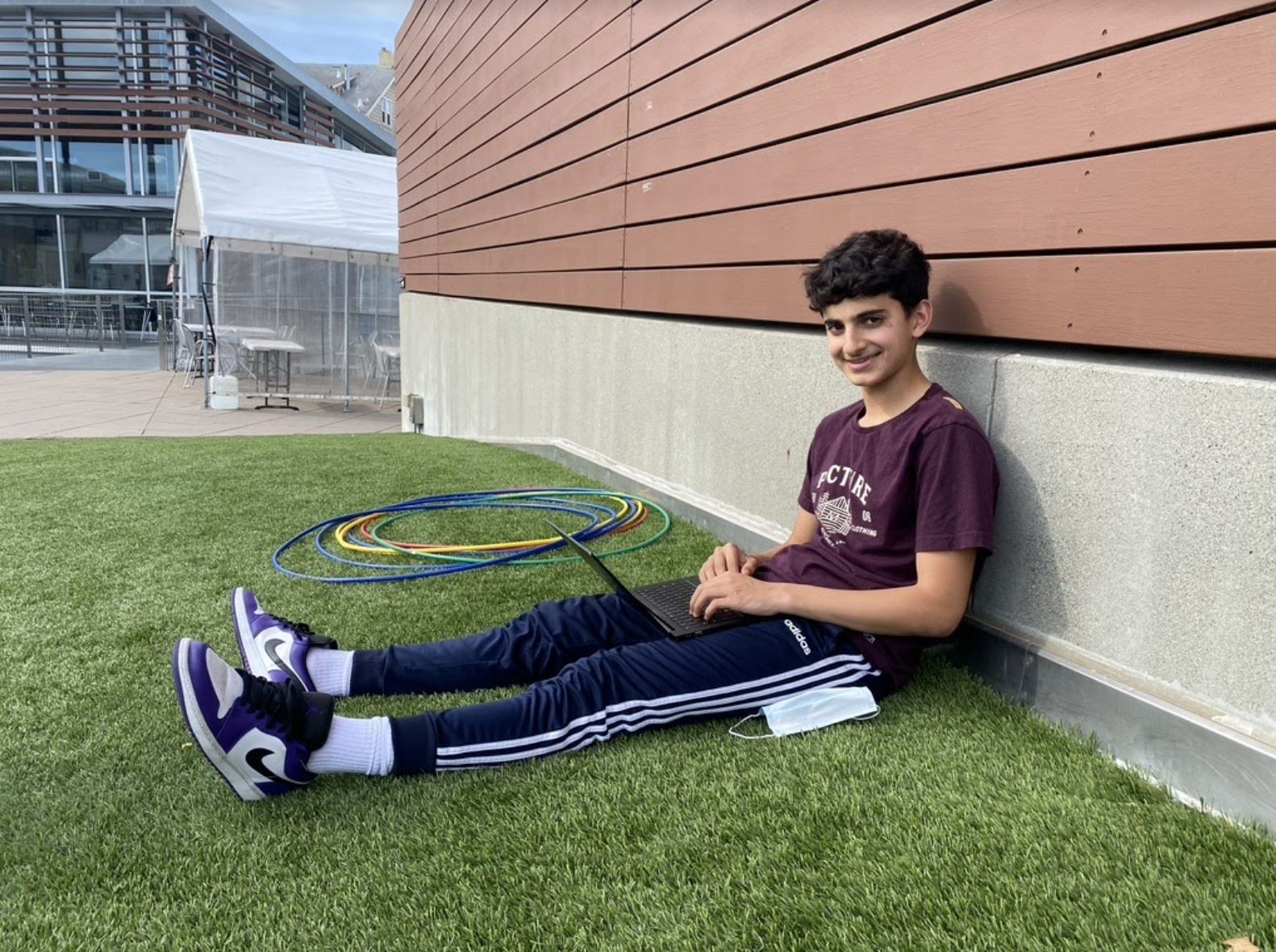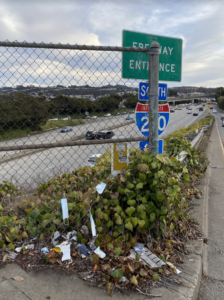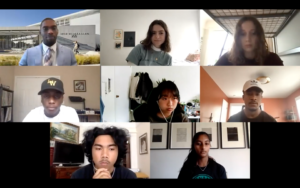Lick-Wilmerding High School’s current ninth and tenth graders were middle schoolers when the pandemic caused schools to close. Both classes had to navigate the shift to high school despite COVID restrictions. The current frosh had only had virtual tours and virtual interviews during their application process. Current sophomores had started LWHS as frosh in virtual classes and finally made it on campus last spring. They had never seen LWHS in its full bloom.
So do they feel welcomed? Has the faculty smoothed the underclassmen’s transition? Do they feel like they belong?
Victor Nolasco ’25 said the faculty are “always asking you if you need help and giving you options.”
Eric Ho ’24 described his advisor as “always available.”
Yanni Velasquez, an associate in the Center for Civic Engagement, described some of his efforts to be open to underclassmen. “We show up and destigmatize the power dynamic a lot of incoming students may have when talking to adults.”
The Center serves as a resource that supports student clubs, affinity spaces and leadership training, peer mentorship and conferences.
Velasquez said, “The Center focuses on LWHS students’ contributions to their communities.”
The Center was able to help students in-person “in a way that’s safe, in a way that doesn’t jeopardize their health and also feels meaningful,” said Velasquez.
Velasquez spoke to the importance of joy and play. “Students come to the Center to work, plan, volunteer and study, but also to have fun. The Center offers a variety of games for playtime.”
While the faculty has been supportive of the underclassman, students have to explore their new territory themselves and discover opportunities, what they want and who they are.
Emmie Hou ’24 said, “I do not know if there was much that the faculty could really do for us.”
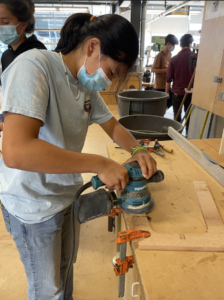
photo by Jacob Weiner
Hou elaborated on the feeling of loss among the tenth grade class because students did not have an opportunity to start high school in person. Students felt as if they missed out on classic LWHS experiences such as rock climbing and the shops. The loss created a disadvantage in adjusting to LWHS both academically and socially.
Eli Rangarajan ’24 expresses how missing these experiences left him and other sophmores in the dark when choosing classes for their second year at LWHS.
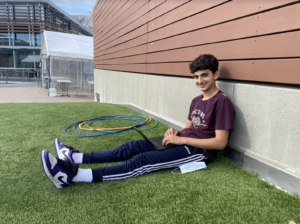
Moreover, frosh and sophomores had to build community and many of their friendships through online platforms during distance learning and in some ways create their own sense of belonging.
Hou said, “A lot of us ended up just directly messaging each other on Instagram, or finding each other over social media.”
She revealed the silver lining of making friendships during this time because “everyone was open and having trouble.”
Administration and faculty members recognize these irreversible losses but also the richness of opportunities ahead. Various programs at LWHS have supported students in adapting to the new environment. The Center’s peer mentorship program, Peer Connect, pairs frosh with upperclassmen to help frosh get acquainted with the community.
Hou states that through her Peer mentorship experience, she was able to become close friends with older LWHS students who introduced her to their friends.
Sports also served as a catalyst for new friendships. Rangarajan explained how sports helped him connect to students in different grades captains and coaches made sports practices and games opportunities for friendship and relationship building.
Christine Godinez Jackson, the Director of the Center for Civic Engagement, explained how students have been stepping up in leadership and community opportunities during the pandemic.
She said, “We’re all hungry to reconnect.”
Godinez Jackson continued, “It’s worth learning how to rethink building community because it’s not as simple as it used to be.”
Adjusting and adapting amidst these unprecedented times has been crucial for the frosh and sophomore classes.
The underclassmen community exemplifies a year of rethinking opportunities and making connections. In some ways, they are a testament to “the perseverance and strength of character,” said Olivia Bye ’24.




